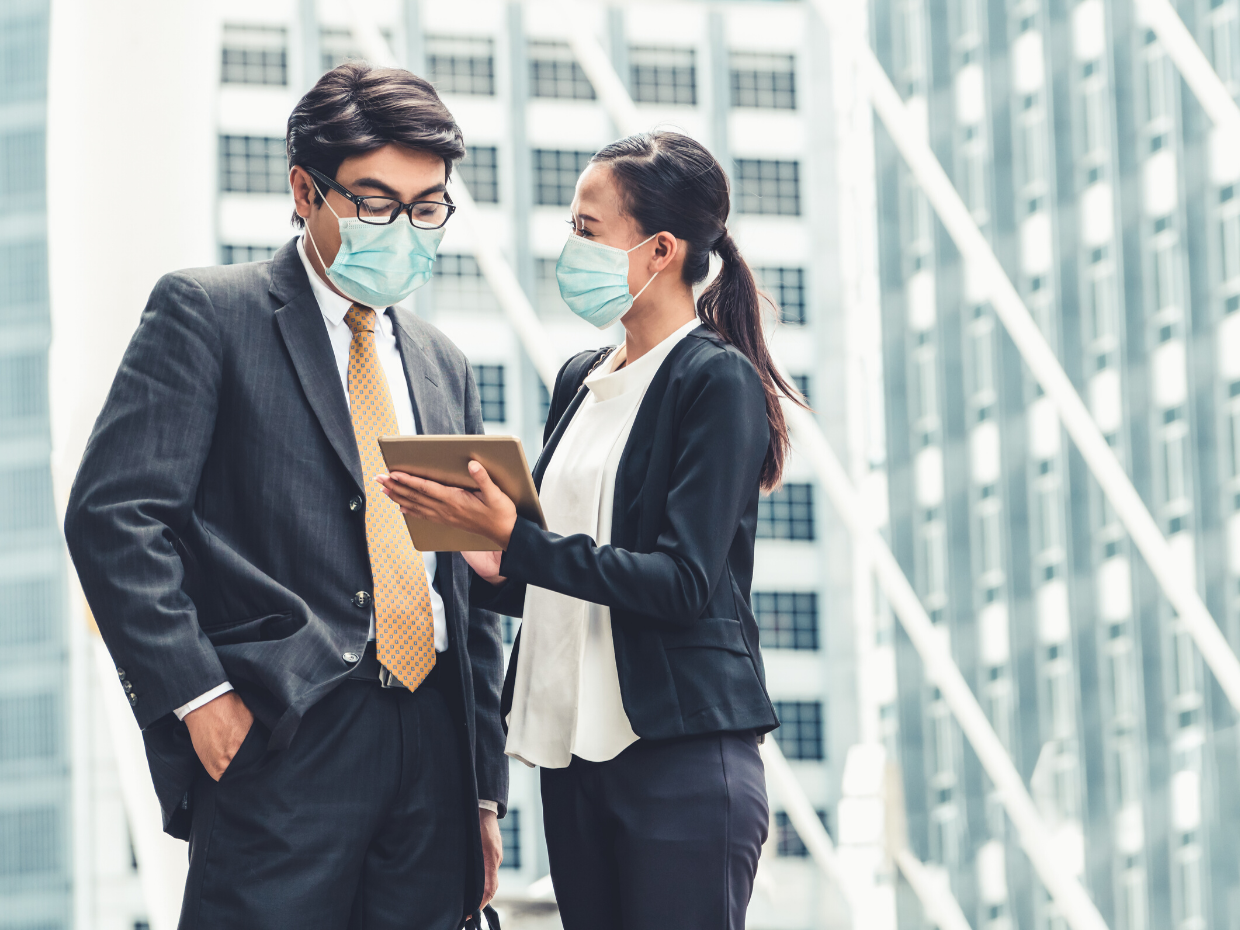In APAC, countries are at different stages of lifting lockdowns/circuit breakers and returning to the new normal.
Accordingly, organisations too have been working on their re-start plans and checklists to open up their workplaces.
Of course, the immediate focus for any organisation should be to secure the health and safety of their employees while ensuring business continuity. Thus, disinfection, temperature checks, social distancing, contactless equipment, healthy packaged meals should be top priority. It is important to make the employees feel confident to return to work.
While these constitute the start of the new normal phase, what else should we be conscious of and prepare for, in the mid-long term? At Sodexo, we have an integrated approach – Rise with Sodexo – to ensure a safe restart and support our clients to leverage on the opportunities of the new normal. The future may seem uncertain currently, but this pandemic has brought about changes that will shape our ways of working in the future. We need to consider and prepare for these changes, introducing and managing them over the near and medium term.
Physical Distancing through Workplace Experience Design
With social distancing being critical, we can’t have the complete workforce back in office, unless we are ready to redesign the space before opening. Hence, as many of you may already know, calling 30%-50% of staff to work while remaining continue to work from home is the logical way forward.
In the next phase, as we plan mid to long term, it would be important to understand what is working well for our employees, their individual experiences and journeys and then decide on the changes to the workplaces. What percentage of employees would continue to work from home or co-working spaces, how many instances of physically collaborative work and how many would participate, investment appetite for making spaces effective and safe, are all questions to be considered. Our workplace design experts at Wx, a Sodexo corp-up, have addressed this in ‘Responding to a quantum shift in work’:
“There is no one-size-fits-all approach, so it is important to have bespoke tools and methodologies underpinning a data-driven, people-centred approach. Sources of data will include insight from the users of different spaces, real-time sensor readings and simulations of long-term effects of certain design choices.”
Data gives us accurate insight into what our people want and their actual behaviour. While a people-centred approach will ensure that we remain empathetic and create emotionally intelligent environments.
Managing Employee Wellbeing post-COVID
Before COVID, there was a lot of conversation happening around creating emotionally intelligent workplaces that catered to the emotional and physical needs of the employees. Now the workplace experience needs to be redefined as we have teams split over two locations, the office and the home/co-working space. How do we ensure that we are addressing the emotional and mental wellbeing of our employees when they are not under one roof? How do we continue to engage them in these scenarios? We’ll delve into these questions in a subsequent article, but one of the critical actions that we need to take is around continued communications.
Apart from HR, as leaders and managers we have to keep the conversation with our teams going and demonstrate that we and the organisation cares for their wellbeing. We also need to keep them informed about the way forward. Lack of transparency of what the future holds can create uncertainty, tension and mistrust. No one has all the answers, but it is good to honestly share this with them as it reinforces their trust and confirms their belief that the organisation and leaders care for them.
While employees may physically not be together, we can continue to engage the team through catch-ups like virtual coffee sessions, promote learning and skill acquisitions through e-learning platforms and relevant webinars, provide opportunities for improving health through virtual meditation, exercises, dance or other skill development programs for which they can sign up. We need to leverage on technologies to create opportunities to connect and to replicate both formal and informal interactions that we previously had face to face at the workplace.
Technology as an Enabler
The key enabler for executing all of the above is technology. Whether it is through contactless solutions installed at the workplace, sensors to understand occupancy and carry out space and workplace analytics, platforms for virtual meetings and collaborations and much more. As technology companies come up with innovative solutions to meet specified as well as unspecified needs, we need to find out more and make use of them.
Redefining post-COVID Organisational Culture
The changes we are witnessing today will also push us to redefine our organisational culture going forward. While organisations have their intrinsic culture defined over years or may be months in case of some start-ups, they no longer will have their employees within the office space to help them imbibe and learn the culture. Employees, including new joiners will be spread afar and yet we have to ensure that they connect and inculcate the right values, ethics and culture that the organisation stands for.
Change Management
Lastly, but certainly not the least, to ensure that all these come together efficiently and effectively we need to have proper change management plan in place. While to a large extent we have successfully and with great speed and agility changed our ways of living to counter the pandemic threat, the change that is coming now would require more patience and planning. The new normal will define our lifestyles for years to come and has to be done right to the best of our knowledge and ability. So what we do at organisational levels, how we manage to successfully on-board all our people, how well we are able to transform ourselves, these will depend on how we manage the change.
If you want to learn more about preparing your workplace to re-start operations, check out these links:
Rise Singapore
Rise India

